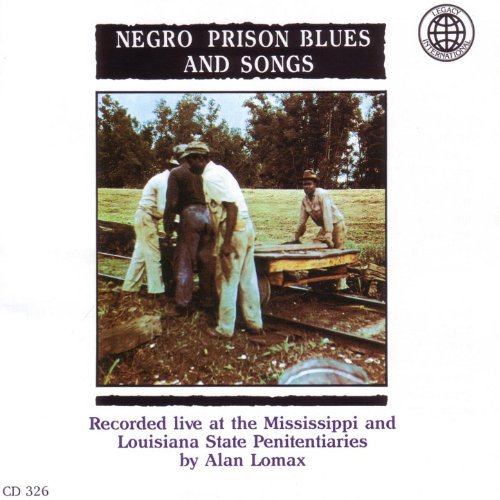4. Alan LomaxNegro Prison Blues And Songs

I first heard Alan Lomax’s work while I was at university. I did music with visual art and film, but luckily at that time, it was just before this tutor left that had run it for 25 years, and he was quite old school but great because it was still fairly shambolic as a course and there was some good soulful stuff.
Alan Lomax did lots and lots of field recordings around America and archived folk, blues and negro music and porchstep music. This particular album is when he went to Mississippi and Louisiana state penitentiaries and documented the prisoners as they were working in cotton fields. They’ve got music in their blood and that’s what came through, I think. It’s just absolute badass, amazing rhythms and there’s a sort of sex to the music – they’re singing about [sings] "be my woman and I’ll be your man!", because they’re obviously randy as hell and stuck in a fucking prison and working under really difficult conditions in the heat. There are different tracks where you can hear a load of axes and chains, and they would sing along to the axes hitting the stone, choirs of beautiful voices of men.
‘Old Alabama’s a really good one and ‘Rosie’ and what’s so interesting is that I would listen to that and instantly there’d be a spider diagram going out. PJ Harvey on To Bring You My Love‘s ‘Goodnight’, she just stands there with a stick and hits it and there’s a guy doing slide guitar. Moby, embarrassingly, sampled loads of it for free. Nick Cave and loads of artists I’ve loved, you just see bits of it in their music, it’s that deep, dark, gothic soul, blues music. This is the raw, concentrated, original bit. There’s a kind of spiritual rawness to it, they’re spiritual songs about missing love and family. "I’ll spend the rest of my days in these four stone walls." The fact that this mad white guy from somewhere decided to go and capture all of these voices – I know there are a lot of rights issues surrounding Alan Lomax, but I think just in terms of being an archivist, I think a lot of that stuff would’ve been completely lost, so it’s great.


